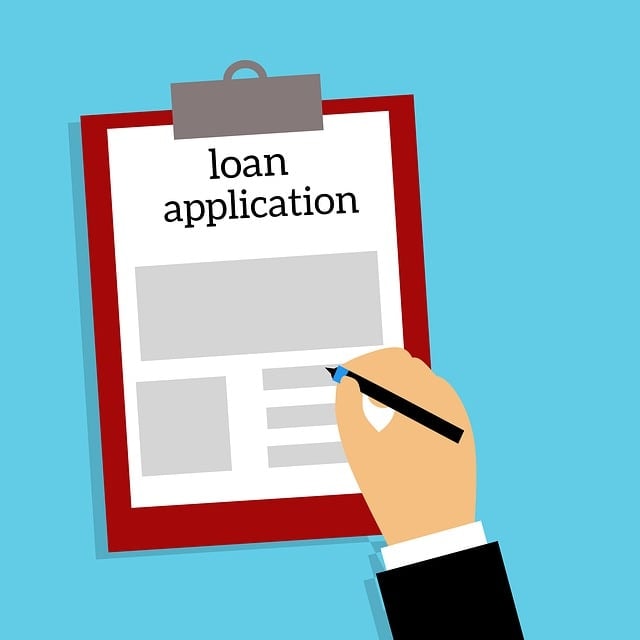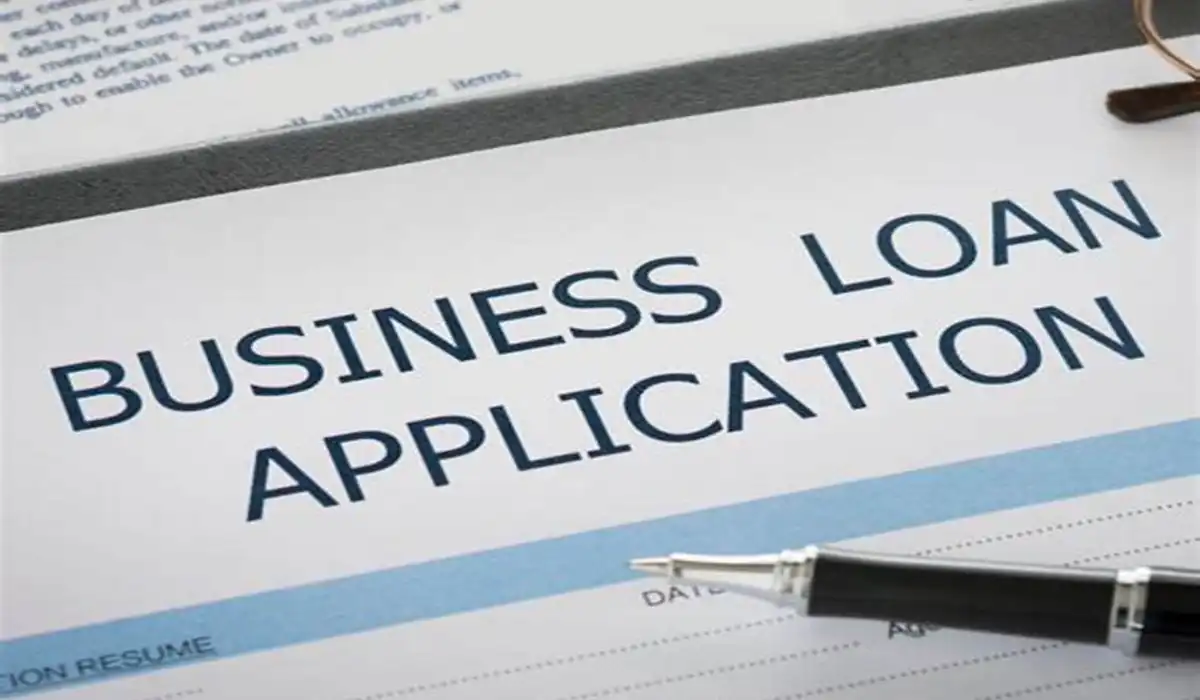Discover the essential business loan documents needed to secure a business loan and enhance your chances of funding success. Read the article for practical guidance.
Understanding Business Loan Requirements
Getting a business loan can help you expand your business, buy equipment, or cover daily expenses. However, the process of applying for a small business loan can be challenging if you don’t know the requirements. To get a business loan, you’ll need to prepare several documents and understand the application process.
Lenders want to make sure that you will be able to pay back the loan. To check this, they look at your business’s health, financial information, credit score, and sometimes even personal details. They also require you to submit a solid business plan and accurate financial statements. Knowing the types of loans available and their specific requirements can make the process easier and faster.
Related: What are LLC Business Loans? Benefits and Application Process

Types of Business Loans
There are various types of business loans, each with its own requirements. For example:
Traditional bank loans:
These usually have strict requirements, including high credit scores and collateral.
SBA loans:
These are backed by the Small Business Administration and may have unique requirements, such as specific financial statements.
Online lenders and credit unions:
They often offer quicker approval with less paperwork but may charge higher interest rates.
Each loan type has different rules and documentation needs. Understanding what each lender requires can help you prepare the correct documents and improve your chances of approval.

- Amount = $5,000 to $500,000
- Loan Term = 4 to 24 months
- Interest Rate = 1.11%
4.8
editorial team. We score based on factors
that are helpful for consumers, such as
how it affects credit scores, the rates and
fees charged, the customer experience,
and responsible lending practices.
- Min. Amount = $10,000
- Max Amount = $500,000
- APR = Factor rate starting at 1.11%
4.8
editorial team. We score based on factors
that are helpful for consumers, such as
how it affects credit scores, the rates and
fees charged, the customer experience,
and responsible lending practices.
Best for large business loans

- Loan Amount = $25,000 - $3,000,000
- $10,000 in Monthly Rev
- No minimum credit score requirement
4.9
editorial team. We score based on factors
that are helpful for consumers, such as
how it affects credit scores, the rates and
fees charged, the customer experience,
and responsible lending practices.
Best for large business loans

- Min Amount = $5,000 - 1,500,000
- APR range Not disclosed
- Minimum Credit Score 570
4.7
editorial team. We score based on factors
that are helpful for consumers, such as
how it affects credit scores, the rates and
fees charged, the customer experience,
and responsible lending practices.
Best for Small business loans

- Min Credit Score = 620
- Loan Amount = $10K-$5M
- Term = 6 months - 10 years
- APR = Variable
4.8
editorial team. We score based on factors
that are helpful for consumers, such as
how it affects credit scores, the rates and
fees charged, the customer experience,
and responsible lending practices.

- Check Your Eligibility
- Get $10K to $2M
- 24/7 Support
4.8
editorial team. We score based on factors
that are helpful for consumers, such as
how it affects credit scores, the rates and
fees charged, the customer experience,
and responsible lending practices.

- Amount = $10,000 to $1,000,000
- Factor Rate = Starting at 1.24
- Term = 2 to 12 months
4.7
editorial team. We score based on factors
that are helpful for consumers, such as
how it affects credit scores, the rates and
fees charged, the customer experience,
and responsible lending practices.
Business Information and Business Loan Documents
When you apply for a business loan, lenders want to learn about your business. This includes its structure, ownership, and management. Here’s what they’ll need:
- Business structure and ownership: Is your business a sole proprietorship, partnership, or corporation? The lender needs to know how your business is set up and who owns it.
- Licenses, permits, and registrations: Depending on your business type and location, you might need specific licenses or permits. These documents show that your business is legally approved to operate.
- A business plan: A clear and concise business plan is essential. It should include:
- Market analysis: Research about your industry and competitors.
- Financial projections: An estimate of how much money you expect to make.
- Marketing strategy: How you plan to reach customers and grow your business.
Related: USA Business Loans with Fast Approval – Cashably
Business bank statements: Many loan programs necessitate the submission of personal and business bank statements as part of the loan application process. Having these financial documents prepared in advance is crucial to comply with program requirements.
Your business plan helps lenders understand your goals, your strategy, and how you’ll earn money to repay the loan. A strong business plan can increase your chances of getting approved.
Personal and Financial Information
Lenders also want to know about you, the applicant. They’ll ask for your personal details, including:
- Personal identification information: Your name, address, Social Security number, and other basic details.
- Income documentation: Proof of your income, such as bank statements, pay stubs, or other documents that show how much money you earn. This shows that you’re financially stable.
- Debt and investments: Any outstanding debts, financial obligations, or investments you have should be disclosed. This helps lenders understand your financial situation and whether you’re able to take on additional debt.
Having a strong personal financial record can positively impact your loan application. If lenders see that you are financially responsible, they may be more willing to approve your loan.
Financial Documents
Your business’s financial documents are crucial in the loan process. These documents give lenders a detailed view of your business’s financial health. The main documents you need include:
- Balance sheets: A summary of your business’s assets and liabilities, showing what you own and owe.
- Income statements: A report showing your business’s income, expenses, and profit over time. This helps lenders see if your business is profitable. The income statement is essential for assessing your business’s profitability and sustainability, as it allows lenders to estimate sales volume and profit margins.
- Cash flow statements: A record of all the cash coming in and going out of your business. This helps lenders see how well your business manages its money.
- Projected financial statements: Some lenders ask for your future financial projections, including an estimated profit and loss statement, cash flow statement, and balance sheet.
In addition to these documents, lenders often ask for your business tax returns from the previous three years. These tax returns provide a reliable view of your business’s historical financial performance. Submitting both personal and business income tax returns helps verify income and assess the debt-to-income ratio, which is crucial for lenders in evaluating the risk of the loan.

Credit Reports and Scores
Credit reports and scores are very important in the loan process. They show how responsible you are with borrowing and repaying money.
- Personal and business credit reports: Check both your personal and business credit reports for any mistakes and correct them before applying for a loan.
- Good credit score: Ideally, aim for a credit score of 700 or higher. A high score increases your chances of approval and can help you get better loan terms, such as lower interest rates.
If your credit score is low, you might face higher interest rates, or your loan application might be denied. Improving your credit score before applying can be helpful.
Related: A Guide to the Business Loan Underwriting Process
Collateral and Security
Some lenders require collateral to approve a business loan. Collateral is an asset, like real estate or equipment, that the lender can take if you fail to repay the loan.
- Types of collateral: Lenders may accept assets such as real estate, equipment, inventory, or accounts receivable as collateral.
- Collateral document: If collateral is required, prepare a document listing the value and details of each asset offered as security.
However, not all loans require collateral. Unsecured loans don’t need collateral but often come with higher interest rates. Choosing a loan with or without collateral depends on your business’s needs and the lender’s requirements.

- Amount = $5,000 to $500,000
- Loan Term = 4 to 24 months
- Interest Rate = 1.11%
4.8
editorial team. We score based on factors
that are helpful for consumers, such as
how it affects credit scores, the rates and
fees charged, the customer experience,
and responsible lending practices.
- Min. Amount = $10,000
- Max Amount = $500,000
- APR = Factor rate starting at 1.11%
4.8
editorial team. We score based on factors
that are helpful for consumers, such as
how it affects credit scores, the rates and
fees charged, the customer experience,
and responsible lending practices.
Best for large business loans

- Loan Amount = $25,000 - $3,000,000
- $10,000 in Monthly Rev
- No minimum credit score requirement
4.9
editorial team. We score based on factors
that are helpful for consumers, such as
how it affects credit scores, the rates and
fees charged, the customer experience,
and responsible lending practices.
Best for large business loans

- Min Amount = $5,000 - 1,500,000
- APR range Not disclosed
- Minimum Credit Score 570
4.7
editorial team. We score based on factors
that are helpful for consumers, such as
how it affects credit scores, the rates and
fees charged, the customer experience,
and responsible lending practices.
Best for Small business loans

- Min Credit Score = 620
- Loan Amount = $10K-$5M
- Term = 6 months - 10 years
- APR = Variable
4.8
editorial team. We score based on factors
that are helpful for consumers, such as
how it affects credit scores, the rates and
fees charged, the customer experience,
and responsible lending practices.

- Check Your Eligibility
- Get $10K to $2M
- 24/7 Support
4.8
editorial team. We score based on factors
that are helpful for consumers, such as
how it affects credit scores, the rates and
fees charged, the customer experience,
and responsible lending practices.

- Amount = $10,000 to $1,000,000
- Factor Rate = Starting at 1.24
- Term = 2 to 12 months
4.7
editorial team. We score based on factors
that are helpful for consumers, such as
how it affects credit scores, the rates and
fees charged, the customer experience,
and responsible lending practices.
Loan Application Process
Once you have all the required documents, you can start the loan application process. Here’s what to expect:
- Gathering documents: Collect all the necessary paperwork and make sure it’s complete.
- Submitting the application: You may apply online or in person, depending on the lender’s options. Some lenders offer online portals for easy document upload.
- Answering questions: Be prepared for the lender to ask follow-up questions or request additional information.
Completing each step carefully can help speed up the approval process and avoid delays.
Special Considerations for Business Loans
Certain loans, like SBA loans, have additional requirements. Here’s what to consider:
- SBA loans: These loans often require more documents, including detailed business tax returns and financial statements.
- Lender types: Traditional banks, credit unions, and online lenders each have different standards. Banks and credit unions tend to have stricter requirements, while online lenders may offer faster approvals with fewer documents.
- Industry-specific needs: Some industries, like healthcare or construction, may require extra permits or documentation. Check if your business’s industry has any special rules.
Understanding these special considerations can help you prepare better for specific types of loans.
Review and Approval Process
After you submit your application, lenders review your information. Here’s what happens:
- Evaluation: Lenders check your creditworthiness and financial stability. They may evaluate your credit report, financial statements, and business plan.
- Site visit: In some cases, the lender may want to visit your business to get a better understanding of its operations.
- Loan decision: Once your application is reviewed, the lender will give you a decision. If approved, they will present the loan terms, such as the interest rate and repayment schedule.
Reading the terms carefully is essential to understand your responsibilities and avoid future issues.

Tips for a Successful Business Loan Application
Here are some tips to improve your chances of getting approved:
- Prepare a comprehensive business plan: A clear plan with strong financial projections shows lenders that you’re serious about your business.
- Maintain a good credit score: A high score can make your application more attractive to lenders.
- Gather all required documents: Having everything prepared can speed up the process and make your application look more organized.
- Consider working with a financial advisor: An advisor or business banker can help you understand the loan requirements and guide you through the process.
Following these tips can make the loan process smoother and increase your chances of success.
Conclusion
In conclusion, applying for a business loan can be a daunting task, but being prepared with the necessary documents and information can make the process smoother and increase the chances of approval. Small business owners should ensure they have a solid business plan, accurate financial statements, and a good credit score to demonstrate their ability to manage debt and repay the loan. Additionally, having all the required legal documents, business licenses, and tax returns in order can help to build trust with the lender and demonstrate the legitimacy of the business.
It’s also important to note that different lenders may have different requirements, so it’s essential to check with the lender beforehand to ensure you have all the necessary documents. By being prepared and having a clear understanding of the loan application process, small business owners can increase their chances of securing the funding they need to grow and succeed.

- Amount = $5,000 to $500,000
- Loan Term = 4 to 24 months
- Interest Rate = 1.11%
4.8
editorial team. We score based on factors
that are helpful for consumers, such as
how it affects credit scores, the rates and
fees charged, the customer experience,
and responsible lending practices.
- Min. Amount = $10,000
- Max Amount = $500,000
- APR = Factor rate starting at 1.11%
4.8
editorial team. We score based on factors
that are helpful for consumers, such as
how it affects credit scores, the rates and
fees charged, the customer experience,
and responsible lending practices.
Best for large business loans

- Loan Amount = $25,000 - $3,000,000
- $10,000 in Monthly Rev
- No minimum credit score requirement
4.9
editorial team. We score based on factors
that are helpful for consumers, such as
how it affects credit scores, the rates and
fees charged, the customer experience,
and responsible lending practices.
Best for large business loans

- Min Amount = $5,000 - 1,500,000
- APR range Not disclosed
- Minimum Credit Score 570
4.7
editorial team. We score based on factors
that are helpful for consumers, such as
how it affects credit scores, the rates and
fees charged, the customer experience,
and responsible lending practices.
Best for Small business loans

- Min Credit Score = 620
- Loan Amount = $10K-$5M
- Term = 6 months - 10 years
- APR = Variable
4.8
editorial team. We score based on factors
that are helpful for consumers, such as
how it affects credit scores, the rates and
fees charged, the customer experience,
and responsible lending practices.

- Check Your Eligibility
- Get $10K to $2M
- 24/7 Support
4.8
editorial team. We score based on factors
that are helpful for consumers, such as
how it affects credit scores, the rates and
fees charged, the customer experience,
and responsible lending practices.

- Amount = $10,000 to $1,000,000
- Factor Rate = Starting at 1.24
- Term = 2 to 12 months
4.7
editorial team. We score based on factors
that are helpful for consumers, such as
how it affects credit scores, the rates and
fees charged, the customer experience,
and responsible lending practices.
Some key takeaways to keep in mind when applying for a business loan include:
- Having a solid business plan that outlines the business structure, market analysis, and financial projections
- Ensuring accurate and up-to-date financial statements, including income statements, balance sheets, and cash flow statements
- Maintaining a good credit score and demonstrating a history of responsible debt management
- Having all necessary legal documents, business licenses, and tax returns in order
- Being prepared to provide personal bank statements and other financial information
- Understanding the loan application process and requirements of the lender
By following these tips and being prepared, small business owners can increase their chances of securing the funding they need to achieve their goals.


 Read More
Read More 




